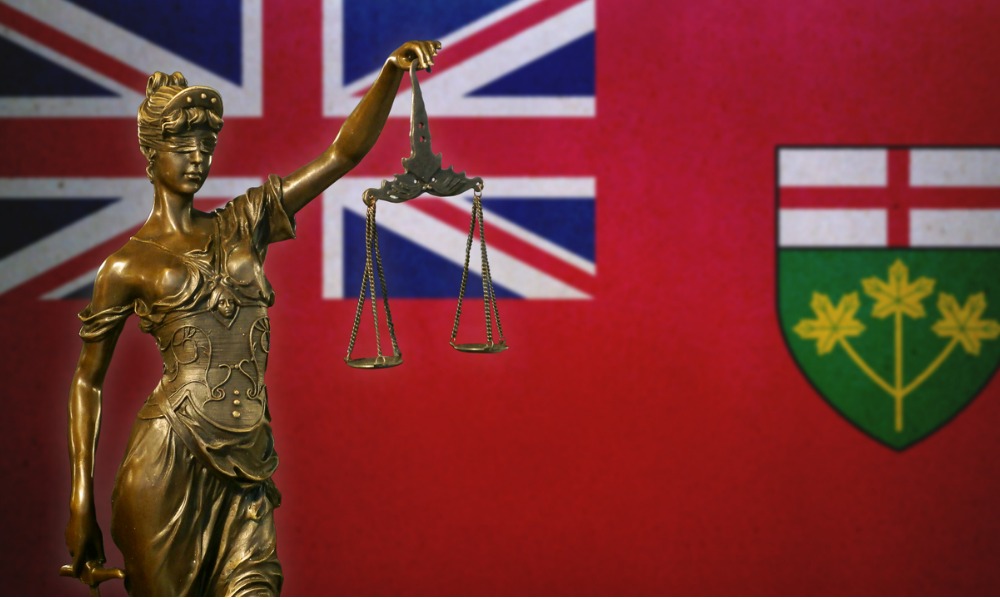
Case also involved an allegation of counsel’s negligence resulting in unfair settlement

The Ontario Superior Court of Justice has ruled to limit a plaintiff’s claims arising from a motor vehicle accident upon finding that the plaintiff has made an enforceable representation.
The dispute in Lepan v. Lofranco, 2023 ONSC 1766 arose from a solicitor-negligence action over a motor vehicle accident in 2008. Plaintiff Ivo Lepan retained defendant Lofranco Chagpar Barristers to pursue tort, accident benefit and long-term disability benefit claims because of the accident. Lepan died in 2017, and his estate continued the action.
The plaintiff alleged that the defendants improperly and improvidently settled his long-term disability and accident benefits claims through dishonest and negligent acts. Lepan further claimed that he was wrongly pressured to accept an improvident settlement of his tort claim. Still, he did not accept the defendants’ recommendation, and instead, he retained a new counsel who resolved the claim on more favourable terms.
The plaintiff filed a claim against the defendants for $525,000 as general, aggravated, and punitive damages from the alleged mismanagement of his claims. The plaintiff alleged that the improvident settlement of his accident benefit and long-term disability claims had a negative impact on the eventual settlement of his tort claim.
Before the divisional court hearing, the plaintiff’s new counsel sent a letter dated October 15, 2020, to the defendants’ counsel. The letter was marked “Without Prejudice” and contained an alleged settlement proposal. The plaintiff asserted that the letter was privileged, but the court eventually found that the plaintiff had waived this privilege.
The issue before the Superior Court of Justice was whether the plaintiff made an enforceable representation to limit its claims to only those damages arising from the alleged improvident settlement of the long-term disability claim and not any damages in respect of the defendants’ management of the accident and tort claims.
The defendants contended that the plaintiff limited his claim through the October 2020 correspondence and later in submissions by the plaintiff’s counsel to an appellate court. On the other hand, the plaintiff argued that the estate only withdrew its pecuniary claims regarding the accident benefits settlement and recommended tort settlement. The plaintiff asserted that the estate is still entitled to pursue non-pecuniary damages from the defendants’ management of those claims.
The court found that in the October 2020 letter, the plaintiff’s counsel expressly advised the defendants’ counsel that the plaintiff would not be pursuing any claims arising from the settlement of the accident benefits claim or from the handling of the tort claim and that the estate’s claim is limited to damages flowing from the settlement of the long-term disability claim.
The court further found that the plaintiff’s counsel’s representations to the divisional court were clearly couched as a promise or pledge. It was a solicitor’s undertaking to the court intended to be acted upon. The court emphasized that the Rules of Professional Conduct promulgated by the Law Society of Ontario require that a lawyer fulfill their undertaking. The court accordingly decided to enforce the plaintiff’s undertaking as to the scope of its damages claim.
The court further found that the plaintiff was estopped from asserting the non-pecuniary claims that it alleged arose from the defendants’ conduct on the accident benefit and torts claim. The court pointed out that the plaintiff’s statements were subject to the doctrine of estoppel by representation. In the divisional court’s reasons, the plaintiff made a positive representation to the court and the defendants that it would limit its claim, which the court highlighted in its analysis.
The superior court ultimately ruled that the plaintiff’s estate waived its claims for all losses arising from the settlement or management of its accident benefits claim and tort claim.